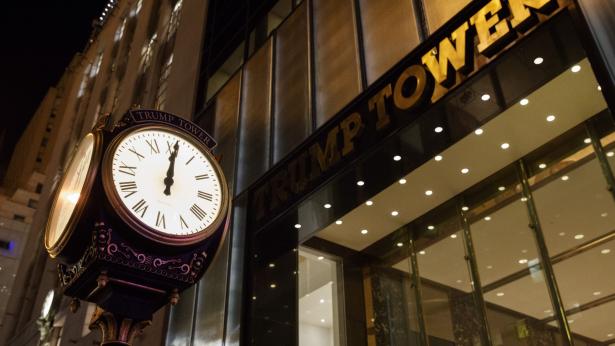Trump Sold $1.5 Billion of Condos to Potential Money Launderers Thanks to This Gaping Loophole
Donald Trump’s love of secretive shell companies has been well documented. He makes extensive use of them for his own businesses and since his election 70% of his company’s property sales have been made to limited-liability corporations (LLCs), according to USA Today.
In an extensive roundup of all the real-estate sales Trump has made since the 1980s, BuzzFeed found that more than 1,300 condos worth around $1.5 billion either owned or licensed by Trump were bought by shell companies in all-cash transactions. That’s 21% of the Trump Organization’s condo sales in the US, BuzzFeed reports.
Why this is a problem
The Treasury Department’s financial crimes unit says (pdf) shell companies and cash purchases are two of the most common ways of laundering money through real estate. Buying with cash lets criminals bypass anti-money laundering reviews that banks have to make when approving mortgages. Meanwhile, shell companies can provide an extraordinary level of secrecy, making it impossible for even the seller to know who they’re making a deal with.
That helps out a huge array of people who want to hide illicit funds. As Shruti Shah of anti-corruption NGO Coalition for Integrity puts it, shell firms’ secrecy makes them “a favorite tool for just about any criminal from tax evaders and money launderers to drug traffickers and kleptocrats.” The secrecy also has serious implications for national security—as shown in the case of a $500-million Manhattan skyscraper, which Iran secretly used as a slush fund for two decades without the US government knowing about it.
How shell companies get away with it
When the Bush administration pushed through the Patriot Act after the 9/11 attacks, it essentially gave big property sellers a pass. Under the law, banks have to find out who owns shell companies before doing business with them, but the real-estate sector got a temporary exemption. Seventeen years later, that exemption is still in place—despite the fact that almost half (paywall) the expensive residential properties in the US are owned through shell companies, according to a 2015 New York Times investigation.
The Treasury has set up a mechanism that forces title-insurance providers in seven major cities—including big Trump markets such as New York, Miami, and Palm Beach—to tell the government the real identities of all-cash buyers who use shell companies. However, after they pass on that information, nothing happens. That’s even though 30% of the buyers involved have been the subject of a previous suspicious-activity report, according to the Treasury.
With Trump in office, the chances of plugging this gaping hole in America’s money-laundering defenses don’t look great. Last summer, a bipartisan group of lawmakers introduced bills in the House and Senate to force US-based shell companies to disclose their actual owners to the Treasury, but so far they’ve gained little traction.
Max de Haldevang (@MddeH) is a reporter on Quartz's geopolitics desk. He covers the Trump administration and its impact on international affairs—and has (un)healthy obsessions with global corruption and anything to do with Russia. He has reported in Mexico and London for Reuters, in Russia for The Moscow Times, and worked for NBC at the Rio and Sochi Olympics. He speaks Russian and Spanish, and has degrees from Cambridge and Columbia.


Spread the word